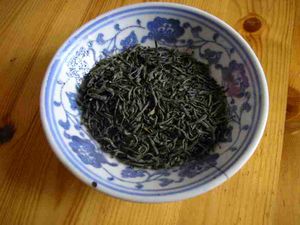Coffee, when consumed in moderation, offers several potential health benefits:
- Antioxidants: Coffee is rich in antioxidants, which help protect cells from damage caused by free radicals and reduce inflammation. Antioxidants like chlorogenic acid and caffeic acid found in coffee beans contribute to these benefits.
- Improved cognitive function: Caffeine, the primary psychoactive compound in coffee, can enhance cognitive function, including improved memory, alertness, and mood. It blocks the neurotransmitter adenosine, leading to increased firing of neurons and the release of other neurotransmitters like dopamine and norepinephrine, which improve brain function.
- Reduced risk of certain diseases: Studies have suggested that coffee consumption may be associated with a lower risk of several diseases, including Parkinson’s disease, Alzheimer’s disease, type 2 diabetes, and certain types of cancer (such as liver and colorectal cancer).
- Heart health: Moderate coffee consumption has been linked to a reduced risk of heart failure, stroke, and coronary heart disease. Some research indicates that coffee may help improve blood vessel function and reduce inflammation, contributing to heart health benefits.
- Physical performance enhancement: Caffeine in coffee can increase adrenaline levels in the blood, leading to improved physical performance. It stimulates the nervous system, signaling fat cells to break down body fat, making it available as fuel for the body, which can improve physical endurance.
- Liver protection: Coffee consumption has been associated with a lower risk of liver diseases, including liver cirrhosis and liver cancer. It may help reduce the risk of liver damage from conditions such as non-alcoholic fatty liver disease (NAFLD).
- Mood enhancement: Coffee consumption has been linked to a reduced risk of depression and a lower incidence of suicide. The caffeine and other compounds in coffee may act as mild antidepressants by affecting neurotransmitter levels in the brain.
- Longevity: Some studies have found an association between moderate coffee consumption and a reduced risk of premature death. However, more research is needed to fully understand the relationship between coffee consumption and longevity.
It’s important to note that individual responses to coffee can vary, and excessive consumption can lead to negative effects such as insomnia, anxiety, digestive issues, and increased heart rate. Moderation is key to enjoying the potential health benefits of coffee while minimizing any adverse effects. Additionally, factors such as the type of coffee, preparation method, and additives (e.g., sugar, cream) can influence its health effects.
OpenAI. (2024). ChatGPT (3.5) [Large language model]. https://chat.openai.com









